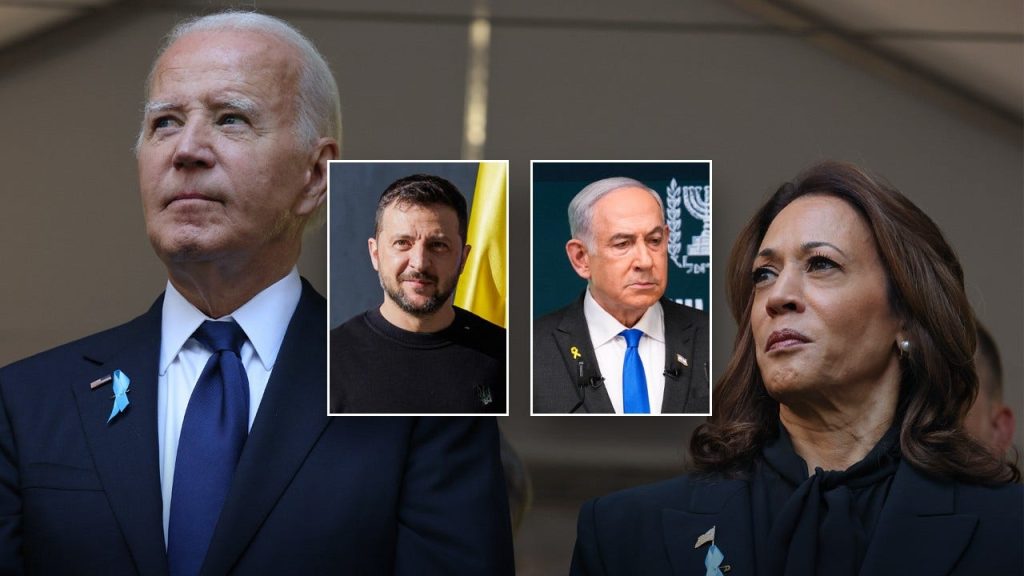The ongoing wars in Ukraine and Israel have brought up questions about the willingness of President Biden and Vice President Harris to support an Israeli victory over Iranian-backed proxies like Hamas and Hezbollah. Experts have noted that the United States’ response to the conflicts in Ukraine and Israel differ significantly. While the U.S. does not validate Russia’s reasons for invading Ukraine, it appears to sympathize more with Palestinian grievances in the conflict with Israel. The Biden-Harris administration has been pushing for a two-state solution and supporting Palestinian demands, despite the failure of past efforts to establish a Palestinian state.
The language used by Biden and Harris in discussing the conflicts in Ukraine and Israel also highlights a disconnect. While they have expressed strong support for Ukraine in its struggle against Russia, their statements regarding Israel’s wars against Hamas and Hezbollah have been less supportive of Israel’s pursuit of victory. The U.S. has even threatened Israel with punitive measures if it takes military action against Hamas, although Israel has ultimately ignored these warnings and defeated the terrorist group in some instances.
Critics of the Biden-Harris administration argue that their policies and rhetoric have hindered Israel’s ability to achieve victory and re-establish deterrence against its adversaries. The U.S. has sought to restrain Israel and push for cease-fires in its conflicts with Hamas and Hezbollah, while offering more freedom to Ukraine in its fight against Russia. The U.S. has also imposed restrictions on Ukraine’s use of long-range missiles, which has been seen as an attempt to appease Iran and prevent escalation in the region.
Iran, a key supporter of Hamas and other militant groups, has expressed its intentions to launch further attacks on Israel in response to Israeli actions targeting Iranian military infrastructure. The Biden-Harris administration’s approach to the conflicts in the Middle East has been criticized for undermining Israel’s security and emboldening Iran. Some experts have warned that the U.S.’s actions may invite further escalation from Iran, as it perceives a lack of support for Israel from the current administration.
Overall, the differences in the U.S.’s approach to the conflicts in Ukraine and Israel reflect a broader strategic divide within the Biden-Harris administration. While the U.S. has shown strong support for Ukraine in its conflict with Russia, it has been more cautious and diplomatic in its dealings with Israel’s wars against terrorist groups. The administration’s efforts to balance competing interests in the region have led to criticism from some experts, who argue that a more decisive and supportive stance towards Israel is needed to counter the threats posed by Iran and its proxies.















